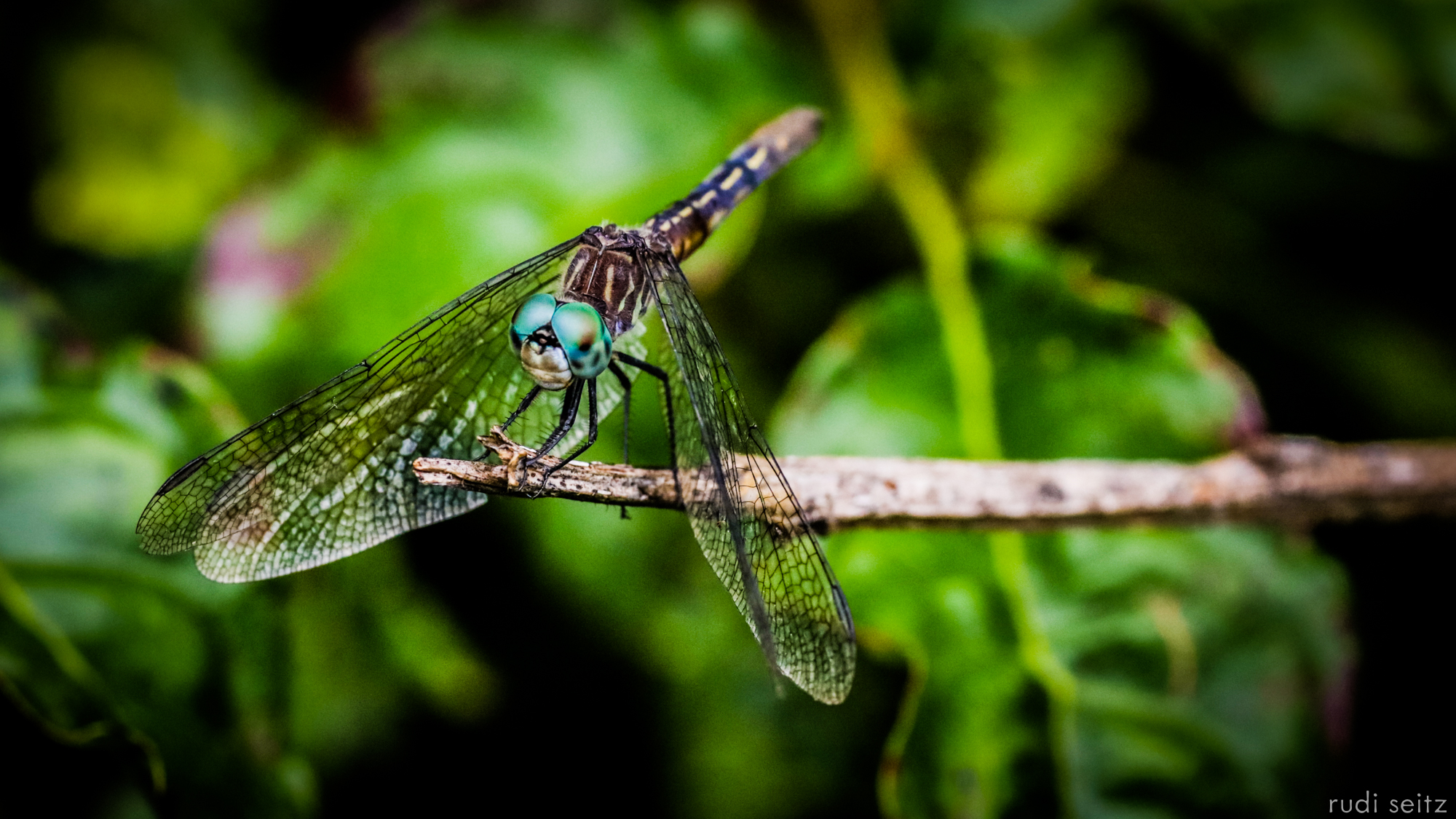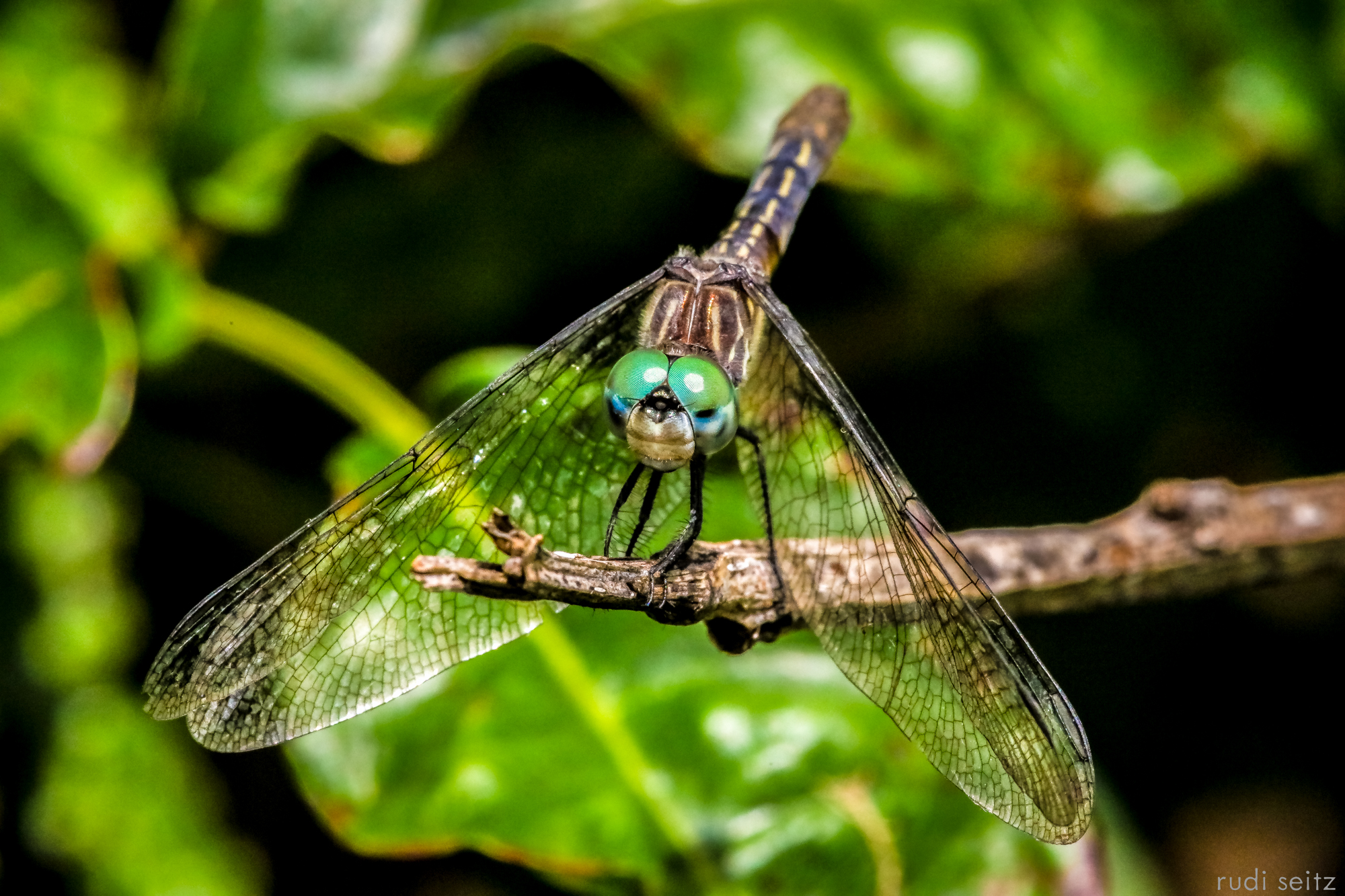
This is a dragonfly I spotted at Millenium Park in West Roxbury last Sunday. It was resting on a twig with its wings forward. As far as models go, it was accommodating and not at all skittish. Whenever it did become startled by my motions, it would fly away and lead me to believe I’d never see it again, but then, in an act of apparent forgiveness that startled me each time, it would promptly return to the same spot! It seemed not to mind as I got deeper and deeper into its personal space, but it did take exception when I made wide changes in focus with my lens. Conditions were mildly windy and I didn’t think I had a chance of focusing manually here, so I repeatedly engaged autofocus as the twig blew a few millimeters one way or another, trying to keep the dragonfly’s eyes sharp. The dragonfly didn’t mind those tiny focus adjustments on its eyes, but when I tried to focus on a different part of its body entirely, like shifting from the eyes to the abdomen, it would somehow sense the bigger change and fly away. How did it know what I was looking at? I realized that my lens was making a louder noise whenever I made a larger focus adjustment. Although dragonflies are not supposed to have a sense of hearing, I gathered that this dragonfly was somehow sensing the stronger vibrations made by the autofocus mechanism when asked to make a larger adjustement. The micro-adjustments were soft enough not to startle the insect but the large ones caused too much vibration for comfort.
Earlier in the morning on Sunday I had listened to an episode of the radio show Living On Earth that discusses an observed decline of flying insects in the natural areas of Germany by a whopping 75% since 1989. Professor Dave Goulson tells us that “[flying insects] pollinate more than 80 percent of all the plant species on Earth so if we lose the flying insects we will lose all the flowers on Earth, literally all of them… Three quarters of our crops need pollinating by flying insects. So, we’d have a world without most fruit and vegetables… Most birds at some stage of their life cycle eat insects. Almost all reptiles, amphibians, aquatic fish, bats, lots of small mammals, all depend on insects. So, essentially take away the insects and everything else is going to collapse.” Reflecting on this, I look at the dragonfly above with a different awareness. It first caught my attention as an interesting photographic subject, but of course it’s more than interesting. Without this dragonfly and other flying insects like it, I wouldn’t be here to do photography and you wouldn’t be here to view it. So, thank you, dragonfly!
 ■
■